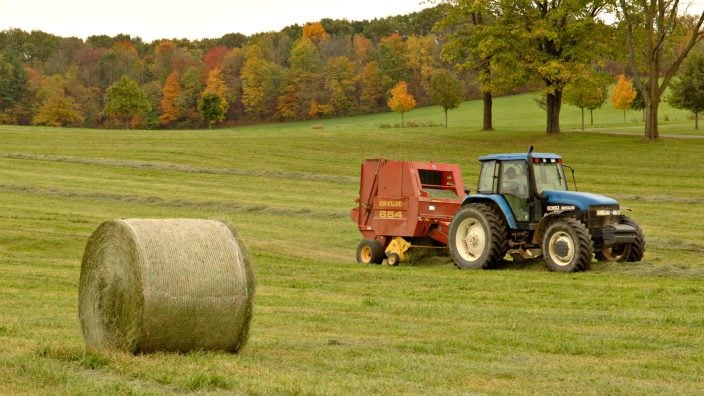Working in the Heat: How to stay safe
Did you know that working in the heat is harder – and more dangerous – when you’re not used to it?
Read MoreI hope that all of you have or are having a safe, successful planting season. God and Mother Nature have cooperated enough for many seeds to get into the ground in the past few weeks. As planting winds down, for many of us, making hay will move into the No. 1 priority. This month I wanted to give some reminders and tips on staying safe while cutting and harvesting hay.
Scout your hay fields early in the spring; this may not be possible at this point of the year as many of the hay fields are considerably high now. Ideally, when the forage is still dormant, driving or walking in fields to look for sinkholes, tile washouts or other hazards could save a disaster. It can save your equipment from a costly breakdown, but more importantly, it can keep you or other operators on your farm safe. If you are cutting a hay field and notice a hazard, shut off the tractor and clearly mark that area.
Before cutting hay, check to make sure that all hay equipment is working properly, and in good condition. As you are greasing equipment, go around the machine and do a visual inspection. Check for worn, missing or damaged parts, and loose belts. Make sure that tractors used for baling are equipped with a working fire extinguisher. A lot of hay equipment is PTO driven. As always, safety should be a top priority when working around any piece of equipment utilizing a PTO. Keep loose-fitting clothing and hair away from them. Make sure all safety guards are in place and working properly. Before working anywhere near a PTO, it should be completely disengaged. Even if the throttle is turned down, a PTO is still spinning fast enough to cause damage.
Square balers especially can be very dangerous to work around. They have many moving parts that can cause serious harm. Do not try to work on any piece of the baler while it is still engaged and running. Shut off the engine and then WAIT for the flywheel and all moving parts to stop before conducting any service. When working on or near the knives, make sure no one turns the flywheel. Before starting the machine, make sure that the twine is threaded properly to avoid knotter problems, and never work with the twine while the machine is running. Bale ejectors can also be dangerous, for those servicing them or for those stacking bales on the wagon. Make sure that they are disengaged before working on them or hooking and unhooking bale wagons. Ensure that bale stackers are aware of the dangers of the bale
ejector; they should always be paying attention while riding on the bale wagon. The last tip is something that I have seen my family do since I can remember helping with hay. I’m sure it is very common, but it is also very dangerous. Never manually push in loose hay from big windrows, or broken bales. The safest practice would be to spread the broken bale or oversized windrow out in the field and allow the machine to pick up the hay on its own.
Round balers and wrappers also have their own set of challenges and safety hazards. Again, make sure that when unplugging or working on the baler the machine is completely shut off. If you are working in the back of the baler, all safety mechanisms should be used such as locks and safety shields. When baling, keeping track of your surroundings is a must. Many round balers have a large blind spot behind the machine which can pose a danger if children, pets or others are behind you when a bale is being released. When ejecting a bale keep in mind the slope of the field. If a bale begins to roll never try to stop it, even with a tractor. When moving round bales, make sure that the bale is on the upslope side of the tractor. Keep stability in mind, try to get the spike into the center of the bale, and do not make fast turns or sudden movements.
Making hay can be a stressful time because it is so weather dependent. Many times, we are in a race against the clock or the rain. Even if you think taking a shortcut when unplugging a baler, or fixing a minor breakdown might not be a big deal, take the extra couple seconds to shut down your machine. It only takes one split second to have a life-changing accident. Keep safety in mind this hay season and take the time to keep yourself, your employees, and especially your families out of harm’s way, by taking a few extra minutes to think about safety.
Submitted by Rachel Kalas, an Ashtabula County Farm Bureau member.
OFBF Mission: Working together for Ohio farmers to advance agriculture and strengthen our communities.

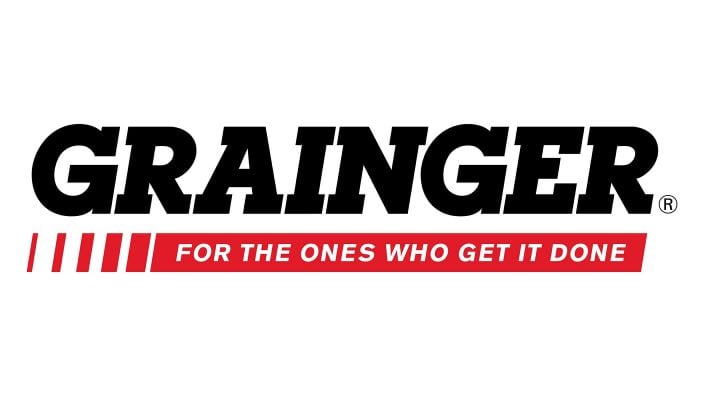
Did you know that working in the heat is harder – and more dangerous – when you’re not used to it?
Read More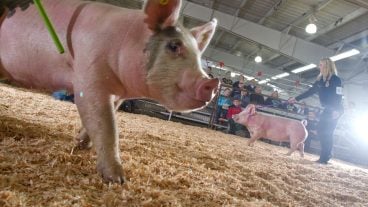
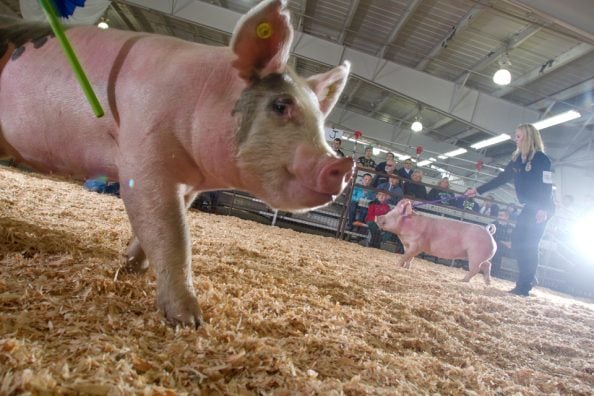
Learn about Nationwide’s new Drive the 5 driver safety campaign and find out how some livestock exhibitions rules have been clarified and simplified for the 2024 county fair show season.
Read More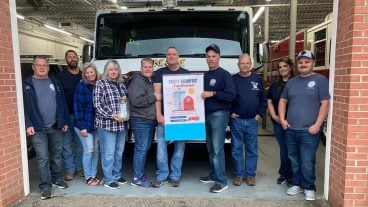
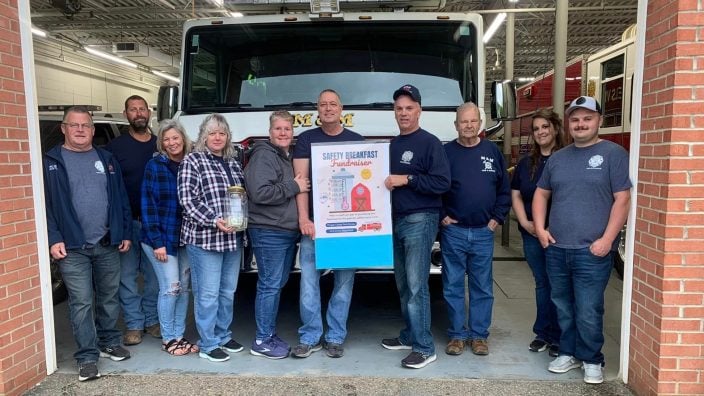
All funds raised from the breakfast went to help purchase new safety harnesses needed for the department’s grain bin rescue equipment.
Read More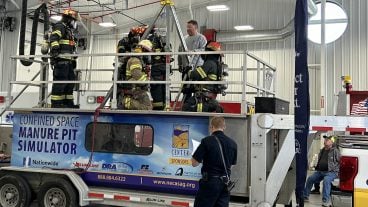
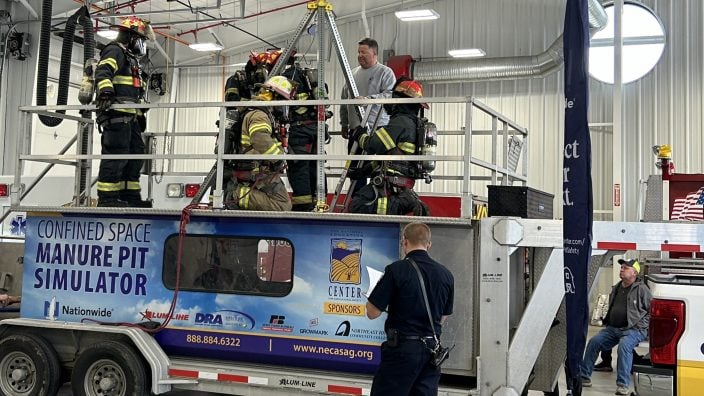
154 farmers, firefighters and other emergency personnel learned critical information about the hazards of working around manure pits.
Read More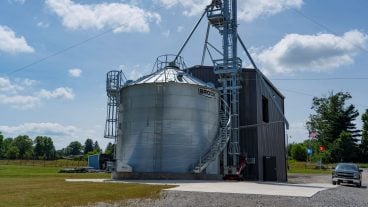
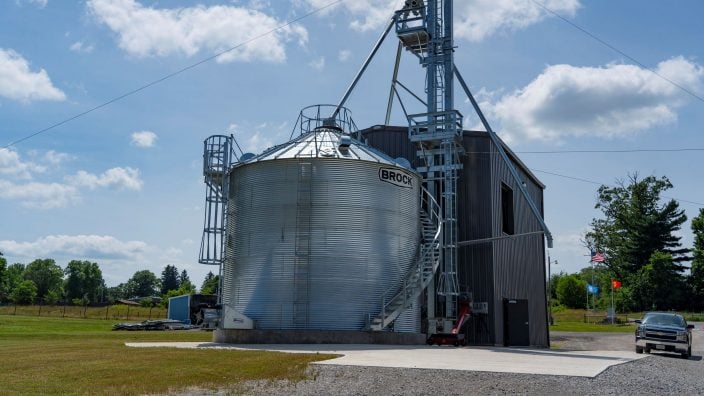
Farming is a very rewarding occupation, but it can come with hazardous territory if there are not proper training protocols in place.
Read More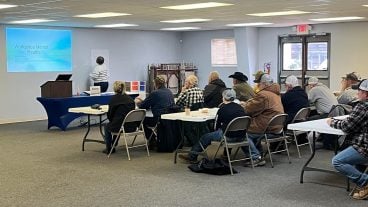
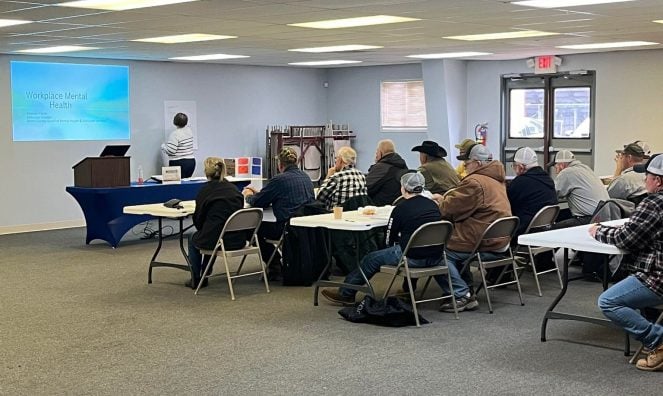
The comprehensive training Feb. 16 covered general agricultural safety, employee health, and mental health well-being
Read More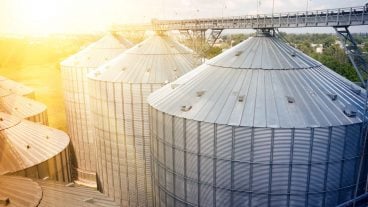
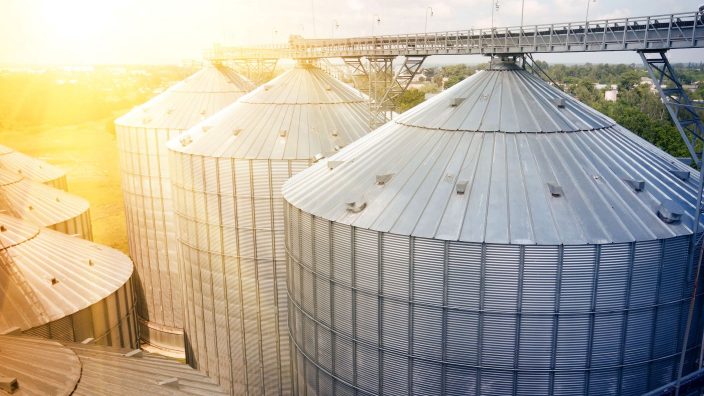
Grain Bin Safety Week Feb. 18-24 is the perfect time for safety reviews, training sessions for your team, and community initiatives to raise awareness about the importance of grain bin safety.
Read More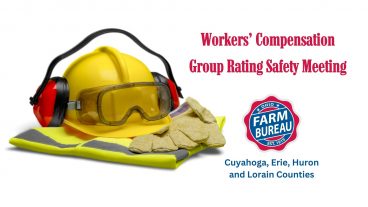
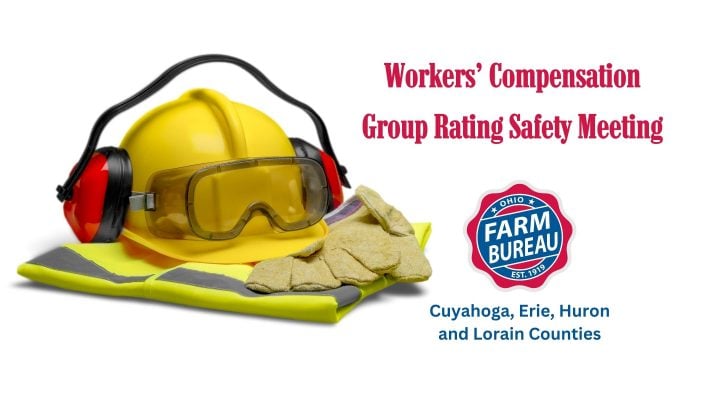
Meet your Worker’s Comp Group Rating Program requirements by attending this safety meeting.
Read More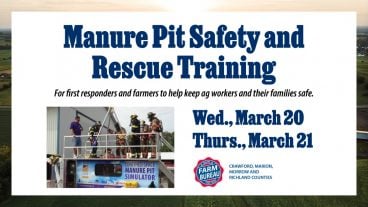
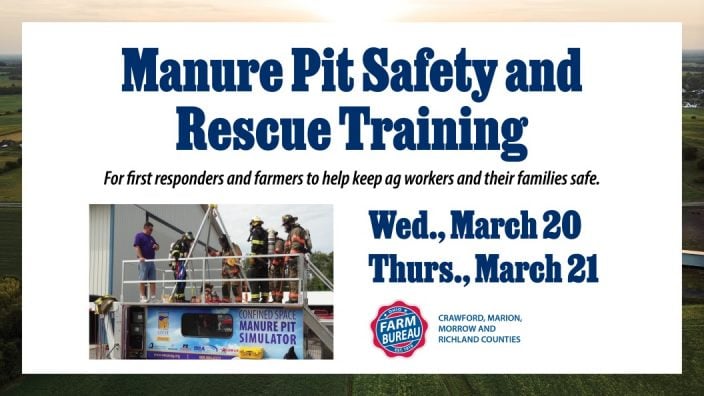
The Nationwide and the National Education Center for Agricultural Safety’s Manure Pit Safety Simulator will be available for four training sessions for first responders and farmers to help keep ag workers and their families safe.
Read More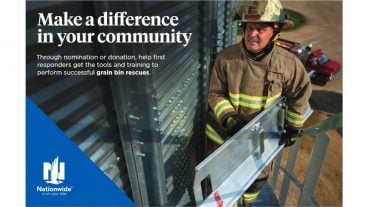
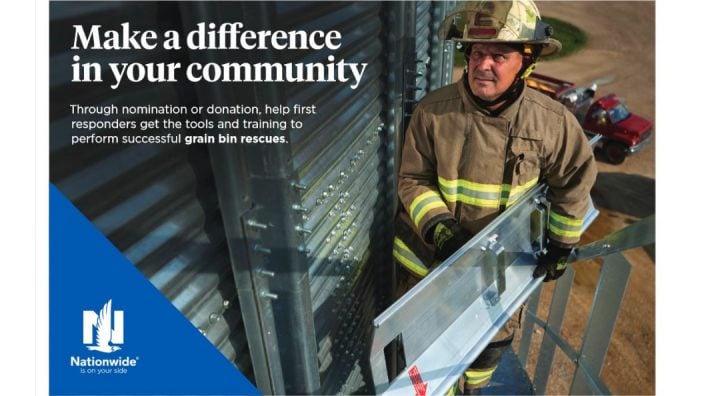
Nominate Your Fire Department to win grain rescue tubes and hands-on training. Deadline: April 30, 2024.
Read More